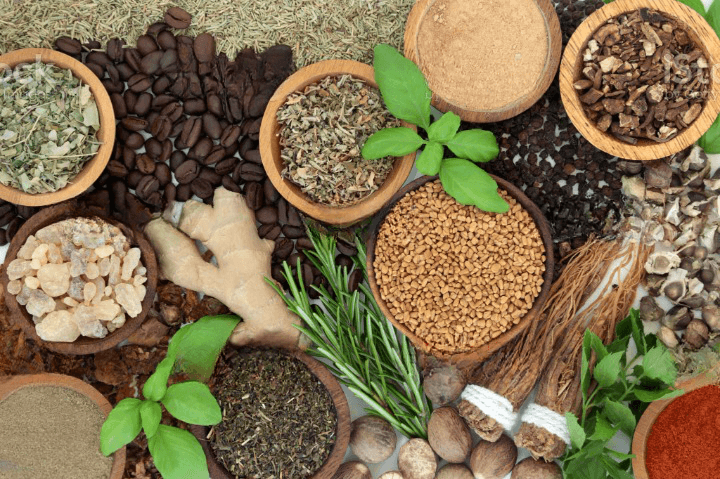In the field of health and wellness, adaptogens have become more prominent in recent years. It is thought that these plant and herb-derived chemicals provide several health advantages by assisting the body in adjusting to stress and regaining equilibrium.
Modern scientific research is beginning to shed light on the potential therapeutic qualities of adaptogens, despite the fact that the notion of adaptogens has its origins in traditional medical systems like Ayurveda and Traditional Chinese medical (TCM). This article will define adaptogens, explain how they operate, and discuss whether or not you should include them in your diet.
Understanding Adaptogens
Adaptogens are natural, plant-based chemicals thought to have special capabilities that strengthen the body’s defenses against both physical and emotional stress.
Pollution and chemicals in the environment are only one example; stress from jobs, relationships, or other life events may also play a role.
In the 1940s, a Russian physician called Dr. Nikolai Lazarev created the word “adaptogen” to describe medicines that improved the body’s capacity to adapt to and handle stress.
Characteristics of Adaptogens
To be considered an adaptogen, a substance must meet certain criteria:
- Non-toxic: Adaptogens should be safe for consumption and generally free from harmful side effects when used in appropriate amounts.
- Stress-resistance: They should assist the body in adapting to and managing stress, promoting resilience and reducing the negative impacts of stress on health.
- Balancing effect: Adaptogens should help bring the body’s systems back into balance (homeostasis) without causing overstimulation or suppression.
Common Adaptogenic Plants and Herbs
Several plants and herbs are well-known for their adaptogenic properties. Some of the most popular adaptogens include:
- Ashwagandha (Withania Somnifera): Ashwagandha is a herb used in Ayurvedic medicine that is said to help with anything from anxiety to fatigue.
- Rhodiola (Rhodiola rosea): Rhodiola has been used for centuries in Siberia and Scandinavia on the belief that it improves concentration, lessens weariness, and heightens energy levels.
- Ginseng (Panax ginseng): Ginseng is widely used in traditional Chinese medicine because it is thought to be a powerful adaptogen that may enhance mental performance and lessen weariness.
- Holy Basil (Ocimum sanctum): Holy basil, often called Tulsi, is an Ayurvedic remedy for anxiety and tension.
- Reishi Mushroom (Ganoderma lucidum): According to TCM, reishi helps the body better handle stress and boosts the immune system.
How Adaptogens Work
The effects of adaptogens are brought about in a number of ways throughout the body. Their effect on the hypothalamic-pituitary-adrenal (HPA) axis, which regulates the body’s reaction to stress, is particularly significant. Stress hormones like cortisol may be controlled by adaptogens, leading to a more even reaction to stress.
In addition, oxidative stress may be mitigated because to the adaptogen’s anti-free radical characteristics. They may aid in cellular protection and general health by doing so.
Should You Add Adaptogens to Your Diet?
Adaptogens have been utilized for millennia in alternative medical systems, but there is still a lack of reliable scientific data on their effectiveness and safety. While there have been some positive findings from investigations, more robust studies are required to confirm many of the purported health advantages.
If you have any preexisting health concerns or are taking any drugs, it is very important to talk to your doctor before adding adaptogens to your diet. Depending on your condition and other factors, they may provide you with specific recommendations.
Concluded Thoughts
Adaptogens, fascinating natural substances with potential advantages in stress management and general well-being, have attracted the interest of the wellness community. These herbs and plants have been revered by traditional medical systems for millennia, but their full potential has only just begun to be explored by contemporary research.
Before adding adaptogens to your diet, it is important to speak with a medical practitioner, as is the case with any supplement or herbal medicine. Keep in mind that the key components of a healthy and happy existence are a well-balanced diet, frequent exercise, and effective stress management.








